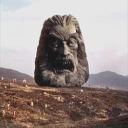Yahoo Answers is shutting down on May 4th, 2021 (Eastern Time) and beginning April 20th, 2021 (Eastern Time) the Yahoo Answers website will be in read-only mode. There will be no changes to other Yahoo properties or services, or your Yahoo account. You can find more information about the Yahoo Answers shutdown and how to download your data on this help page.
Trending News
Why do so many people refer to the 'big bang' theory as fact?
It seems rather silly that our universe was created by a very big explosion, as there is just no way for us to truly know that kind of information.
However, I'm more than willing to accept that concept, if it were to be definitely proven. What I just cannot understand, is why everyone instantly accepts and treats the theory as if it were an unquestionable fact.
I've posted this question twice, as I was unsure if this would apply towards the space category, or the social science category.
You people don't understand, the big bang is nothing more than a plausible theory, and is not a fact in any such way. Although yes, there is no way to factually prove that the big bang had ever occurred, and I won't deny that it's a definite possibility. What I just cannot seem to understand is why everyone is treating it as if it were an undeniable fact.
I know what the definition of a theory is, and I understand that the big bang is a very plausible possibility, but no one is treating it as a theory. I just cannot even begin to comprehend how anyone is at all capable of determining that our universe was created in such a way, no matter how much scientific evidence we supposedly have to back it up. Science has been wrong before, and although I am a strong supporter in most scientific research, I just have doubt that the big bang, as it's called, could have ever occurred.
@Zardoz, thank you for your input.
I was referring to the general population, and not cosmologists, astronomers or physicists.
The general population is acting as though the theory were a proven fact.
Also, I'm aware that no one is concerned with my understanding or my knowledge, just as I'm not concerned with yours. We all learn at different paces, and you can't learn if you don't ask questions, right? That's why I've come here. To put my current knowledge and understanding, for other people, such as yourself, to expand upon what I already know, and to correct the mistakes I have made.
Again, Zardoz, thank you for your answer.
I wrote 'you people don't understand' after I've received a total of three answers, and was directing it at the first three unedited answers I've received, not everyone else.
Since I've published that update, I've received a bunch of helpful answers that contained helpful information.
27 Answers
- Anonymous9 years agoFavorite Answer
There's a reason that understanding the Big Bang isn't in junior high school syllabuses. To know it happened can be learned. To understand what it means requires a career of theoretical and mechanical physics.
For a start, though, the Big Bang was not literally an explosion. The term "Big Bang" describes the initial expansion. And cosmologists do regularly say "We don't know", which is why they're researching it. Everything can be known according to the laws of physics, assuming our understanding of them is correct, back to a certain time. That time is a tenth of a thousandth of a millionth of a billionth of a trillionth of a trillionth of a second after the beginning of the expansion that we call the Big Bang.
Before that, the laws of physics as we understand them don't apply. That's the bit about which physicists and cosmologists say "We don't know". They have theories, which they test every time a new understanding or discovery comes about regarding the laws of physics, but that's all.
So, what they don't know is about an extremely short time. By all means, tell them you're not happy that they haven't solved the ultimate mystery. But how about credit where credit's due? Congratulate them also for what they've managed to deduce about the 14-or-so billion years since that unimaginable fraction of a second after the beginning.
- charcindersLv 79 years ago
Scientists talk about it as if it were fact for the sake of simplicity. It's easier to say "The Big Bang" than "The Big Bang that we are almost certain happened".
Scientific research works within paradigms, a paradigm being a framework usually based on a theory. Most of the research is concentrated on investigating aspects of that theory. It's common sense to do it that way because there is only so much time and money we can spend doing research. So if someone wanted a few million to do some research on how galaxies might be formed in a steady-state universe they wouldn't get it, because the prevailing paradigm is Big Bang, not steady-state.
If someone uncovers evidence that shows the Big Bang cannot be true then the Big Bang theory will be thrown out and the paradigm will change. At the moment though it is by far the best we have, with some very strong evidence to support it.
Edit:
The first few answers to any question are often from people who just rattled off an answer without thinking about it just to be noticed, so they tend to be quite bad.
- ?Lv 44 years ago
this is probably going one among the frequently relatively asked questions with the help of the Christians on Y!A so enable me attempt to place it as bluntly as achieveable, that is basically a theory by way of fact it HAS TOO MANY factors and is not A single actuality. You do comprehend that even gravity is in actuality a theory suitable? I wanna see you try to defy that. And the entire factor of being an atheist isn't being tied all the way down to a minimum of one changeless actuality, if the great bang is ever shown fake then we are able to persist with the hot theory and leave the previous one at the back of, such is the evolving nature of technology.
- ZardozLv 79 years ago
"… there is just no way for us to truly know that kind of information."
Correction: There is just no way for you to know. Those who bother to spend the time and energy are well able to know.
"However, I'm more than willing to accept that concept, if it were to be definitely proven."
No one is concerned with whether you are able to accept the concept. It does fine without you. And science isn't law: proven isn't a scientific concept. Science uses a no contradiction, best fit of all the facts concept. The Big Bang Theory as an explanation for the formation of the Universe best fits that standard.
"What I just cannot understand, is why everyone instantly accepts and treats the theory as if it were an unquestionable fact."
Neither can I, so it is fortunate that no astronomers, cosmologists or physicist do so. Extremely smart professionals all over the world are questioning its validity every day of their careers and have yet to put a dent in it. Sure, there are unanswered questions; but, there aren't any answers that contradict it… yet. It is the no contradictory answers that seal the deal.
Edit:
"You people don't understand…"
How has your declaration of not understanding turned into your psychic power to know what we understand?
We very well understand that a fact is a piece of trivia and a theory is an extremely well supported understanding of reality. We also inherently understand that the theory might be in error. Because we understand this, and we understand that the people who seriously discuss science understand this, we don't have to keep mentioning it every few sentences.
"I just cannot even begin to comprehend…"
And the more you write the more obvious this becomes.
Edit: Well, it's good that I am conceited enough that I can't feel like a jerk, otherwise I might feel like a jerk.
"Also, I'm aware that no one is concerned with my understanding or my knowledge, just as I'm not concerned with yours."
It is your criticism of something that you are not qualified to criticize that is of no concern. Your understanding and knowledge is of great concern. I wish everyone understood everything. I've wasted many a birthday cake on it. But to no avail.
As to the general population: why would anyone consider what they think of it? We don't worry about what the general population thinks of cold flow in metallic alloys or harmonic suppression in power lines before accepting the answers we get from our observations on these subjects.
P.S. If the question is why people form opinions on things that they don't have the slightest clue about maybe it should be asked in a psychology category. But if it is to be asked in the science category it needs a lot of qualifiers.
- How do you think about the answers? You can sign in to vote the answer.
- ?Lv 79 years ago
It is accepted by the scientific community in the same way that many religious communities accept divine creation as "fact." My counterquestion to you is - why do you believe the religious community instantly accepts said divine creation as an unquestionable fact, especially when there is no evidence for that to be the case either?
The main difference between scientific universal formation and divine creation is that science can be tracked (much further back than that of which divine creation speaks). Thanks to images from the hubble telescope, which in a sense let us see into the past (due to the distance and lightspeed). We see thinks very far back, and scientists have noticed characteristics that are often associated with massive explosions.
Not every person in the scientific community accepts the Big Bang as a fact, but it has been one of the most frequently studied theories and it has a lot of circumstantial evidence as backup.
In addition, the universe is still expanding, and such expansion is caused naturally after the force of such
- notblindu2Lv 69 years ago
A lot of people think evolution is fact also but we all know that is a theory. It's a matter of how much evidence does it take for someone to agree with findings and consider the facts as a whole. When a better theory comes along it will displace the old theory as the new accepted fact. If some omnipotent being created the universe, would there not be a clue somewhere? I think there would be signatures all over this universe.
- Bob D1Lv 79 years ago
Theory: A hypothesis that has been well confirmed in accordance with observable facts and experimental data; and, generally, is of sufficiently broad scope to have wide application and utility. Example: That the physical characteristics of biological organisms are, for the most part, genetically determined. See: Hypothesis, Law, and Covering Law.
It is no different with the big bang theory. There are tons of evidence in support of the theory itself and for the predictions it makes. The data generated in support of the big bang theory was not determined along a single path, but the data was experimentally determined along two or more different paths. In other words, if one type of study yield expected results, other types of experiments were designed (taking an entirely different approach to the problem) to see if they too would yield the same solution. The big bang theory is about as close to "certainty" as are Newton's and Einstein's equations describing gravitational effects between masses bodies. Both Newton's and Einstein's theories of gravity are very good, reliable, models.
The big bang expansion describing the emergence of the Universe is almost a certainty, in my opinion, until someone comes along and offers better, more convincing evidence that suggest otherwise. And I don't think that's likely to happen anyway soon.
Source(s): self - FaessonLv 79 years ago
Any time someone starts a sentence with "You people don't understand"... I gotta expect the next line to be a doozy. For example "... that cannibalism is a legitimate life-style choice." or "... when I said "I never had sex with that intern" I was speaking metaphorically." or "... that I was offering to HELP you when I said you depend more on foodstamps than a paycheck". (the last one was more or less Newt Gingritch.)
If a lay person thinks the Universe started with the Big Bang, so what?
I think "It's only a theory" doesn't mean what you think it means.
The difference between an everyday person and a scientist isn't so much the years of study, its the flexibility when a theory pans out. A scientist says "oh? Let's get to work and come up with a better explanation" while a Regular Joe screams, pulls out his hair and joins a cult to wait for the end of days.
Feel free to not "believe" in the Big Bang. I am willing to hear your alternative explanation.
- ?Lv 79 years ago
The Big Bang Theory is the best description we have of how the universe began, and that is a fact. The problem arises when people try to merge the concept of facts and scientific theories (which are based on facts). BBT is supported by extensive data;
** The red shift of almost all galaxies, getting greater as their distance increases.
— This shows that the galaxies are flying away from each other, at greater speeds at greater distances.
** The cosmic microwave background radiation.
— This is a remnant of the radiation from the Big Bang, and has cooled over time to the exact temperature predicted.
** The variations in the cosmic microwave background radiation.
— These variations fit theoretical predictions, and were caused by quantum differences near the start of Big Bang.
** The proportions of the lightest elements and isotopes.
— This helps show that the calculations for nuclear interactions immediately following the Big Bang are correct.
** The changes in galaxies as we look further away (and thus back in time), with distant galaxies more primitive and having fewer heavy elements.
— This shows some of the changes in the universe since the Big Bang, and confirms the deep time of the universe.
** The change in the apparent speed of type 1a supernova as we look back in time, with distant supernova exploding more slowly.
— This shows that the light has been stretched out by the expansion of space over billions of years.
It used to be that science couldn't answer the question about the origin the universe or of the Big Bang, but that didn't mean we should make up an answer (such as a god) and say that it was the cause. Within the last few decades science has discovered some good answers.
There are many well-respected physicists, such as Stephen Hawking, Lawrence Krauss, Sean M. Carroll, Victor Stenger, Michio Kaku, Alan Guth, Alex Vilenkin, Robert A.J. Matthews, and Nobel laureate Frank Wilczek, who have created scientific models where the Big Bang and thus the entire universe could arise from nothing but a quantum vacuum fluctuation -- via natural processes.
In relativity, gravity is negative energy, and matter and photons are positive energy. Because negative and positive energy seem to be equal in absolute total value, our observable universe appears balanced to the sum of zero. Our universe could thus have come into existence without violating conservation of mass and energy — with the matter of the universe condensing out of the positive energy as the universe cooled, and gravity created from the negative energy. When energy condenses into matter, equal parts of matter and antimatter are created — which annihilate each other to form energy. However there is a slight imbalance to the process, which results in matter dominating over antimatter.
I know that this doesn't make sense in our Newtonian experience, but it does in the realm of quantum mechanics and relativity. As Nobel laureate physicist Richard Feynman wrote, "The theory of quantum electrodynamics describes nature as absurd from the point of view of common sense. And it agrees fully with experiment. So I hope you can accept nature as she is — absurd."
For more, watch the video at the 1st link - "A Universe From Nothing" by Lawrence Krauss, or get his book (at the 2nd link).
-
Source(s): http://tinyurl.com/y8j6tpa http://www.amazon.com/Universe-Nothing-There-Somet... http://www.godlessgeeks.com/WhyAtheism.htm#bigbang http://www.stellarhousepublishing.com/originsofchr... http://ffrf.org/legacy/about/bybarker/rise.php http://www.godlessgeeks.com/JesusExist.htm - MorningfoxLv 79 years ago
(1) The "Big Bang" was not an explosion.
(2) The "Big Bang Theory" is a fact in about the same way that the "theory of arithmetic" is a fact, or the "theory of how to build cars" is a fact. Would you argue that 1 + 1 does not equal 2, or that reciprocating pistons don't need ring seals?








